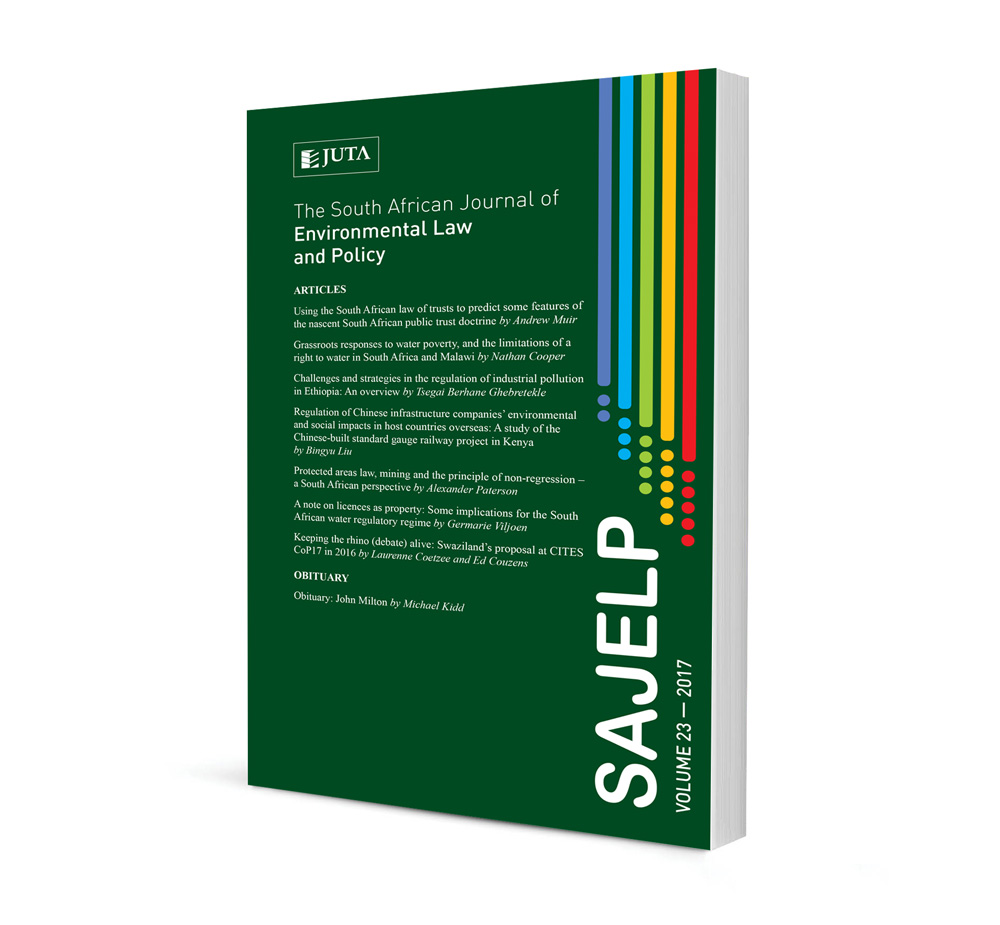Conservation servitudes in South Africa

Conservation servitudes in South Africa
Authors: Marthán Theart and Kirstin Meiring
ISSN: 2616-8499
Affiliations: BA LLB (Stellenbosch), LLM (Environmental Law) (UCT), Legal Specialist, South African National Biodiversity Institute; LLB, LLM (Environmental Law) (UCT), Environmental Law Intern, South African National Biodiversity Institute
Source: South African Journal of Environmental Law and Policy 2020, p. 105 – 133
https://doi.org/10.47348/SAJELP/v26/a4
Abstract
In recent years, the conservation servitude has gained traction as a biodiversity stewardship mechanism for the protection of biodiversity and ecological infrastructure on private land in South Africa. This article provides insight into what a conservation servitude is and showcases how it has been used in practice by non-governmental organisations, environmental authorities and municipalities in South Africa to further conservation objectives. It explores the common and statutory law limitations on the use of servitudes for conservation purposes and identifies some of the innovative strategies that have been used, by especially non-government organisations and municipalities, to overcome these limitations. The similarities and differences between conservation servitudes and other mechanisms used in South Africa to secure areas of biodiversity significance or ecological infrastructure are considered, before identifying the various contexts in which conservation servitudes are currently being used in practice.
